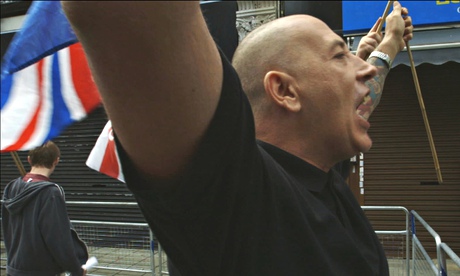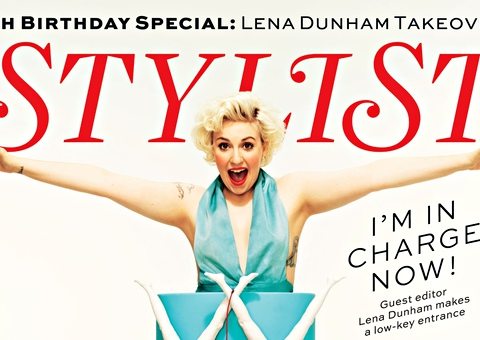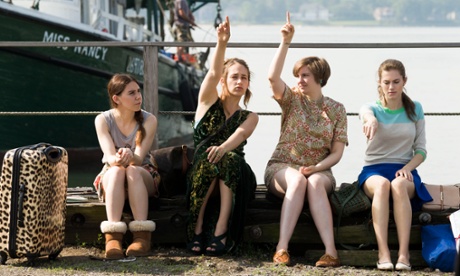Getting Covid wasn’t the way I intended to spend my first few weeks of being 32, but like many other Australians battling the Omicron wave, earlier this year I was stuck on the couch mired in lethargy for weeks.
Unable to concentrate on anything new, I was delighted to find all six seasons of Lena Dunham’s Girls available to stream. Like the show’s protagonists, I was 22 and fresh out of university when it came out to acclaim in 2012 – and watched in real time as that acclaim turned to backlash.
Heralded as the millennial answer to Sex and the City, critics were irked by Dunham’s candid style, the awkward and in-your-face sex scenes, and the unlikability of the four main characters. The show also had its blind spots when it came to representation.
In many ways, Hannah (played by Dunham), Marnie, Jessa and Shoshanna were not unlike my own friends. We were also working out what our careers would look like, compromising on the men and women we dated, and coming to the crushing realisation that our ambitions were unlikely to eventuate with the grandiosity we had dreamed of.
Still, I felt a level of distaste for the chaos and self-indulgence of the eponymous girls. Twenty-two-year-old me loved hate-watching it while claiming some level of intellectual superiority over the way it depicted my generation of women.
Fast-forward 10 years, and rewatching the series I don’t feel the irritation and condescension that I would have expected to solidify with time. Instead, I feel a nostalgic affection for the leads and a startling sense of admiration for the true hero of the series: Ray.
I’m aware I’m choosing to centre one of the few male characters in a TV series literally named Girls – but I do have my reasons. On first viewing, Ray – played by Alex Karpovsky – was a distasteful interjection into the quirky, alcohol-infused, social media-fuelled millennial dreamscape of the series.
Thirty-three, grumpy and with a penchant for long soliloquies about all the ways in which the world is broken, Ray seemed to mostly be there to contrast the youthful abandon of Hannah and her friends’ 20s, haunting them like a spectre of their depressing 30s to come.
But with the benefit of age and perspective, Ray really shines through as a down-to-earth giver of pragmatic advice, who uses his gruff exterior to mask a genuine depth of caring for his friends.
Across six seasons (spoiler alert but come on it’s been 10 years), Ray proffers meaningful advice to Marni amid her directionless ennui (“I’m old enough to recognise that all this bullshit comes from a deep dark well of insecurity,” he says – advice that seems relevant to most existential crises); he shows genuine love and care for ex-girlfriend Shoshanna as she grapples with what life after uni even is; and he portrays a depth of grief at the loss of his father figure and employer in season six, which contrasts starkly with the random chaos of the other characters, who seem incapable of a real feeling towards anyone other than themselves.
Ray isn’t without his faults, obviously. He reads Hannah’s diary without her permission; he is rude and aggressive a lot of the time; he is prone to fits of yelling at strangers. But lurking beneath his frustrated masculinity is a glimpse of something tender and real.
There’s a lot that Girls got wrong. There was very little meaningful diversity, interrogation of class or race, a dose of fat-shaming and a reinforcement of some fairly icky sexuality and gender norms. But Ray Ploshansky? Ray speaks to my 32-year-old cynical heart, and I’m here for it.











